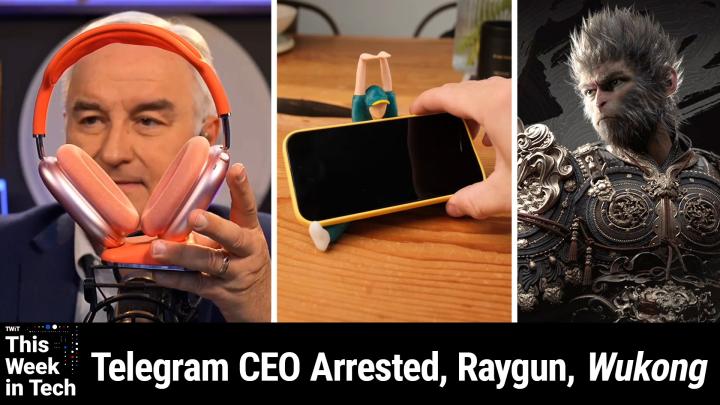Torn on the Arrest of Telegram's CEO
AI created, human edited.
In a shocking turn of events, Pavel Durov, the founder and CEO of popular messaging app Telegram, was arrested in France on August 24, 2024. This incident has sparked a heated debate in the tech world about the responsibilities of platform owners and the limits of free speech online.
On the latest episode of This Week in Tech (TWiT), host Leo Laporte and guests Christina Warren, Reed Albergotti, and Sam Abuelsamid delved into the complexities of this case, exploring the various angles and implications of Durov's arrest.
According to reports, French authorities arrested Durov as he arrived on a private jet from Azerbaijan. The arrest was based on an outstanding warrant related to alleged complicity in drug trafficking and other serious crimes due to a lack of moderation on Telegram.
This move by French law enforcement has raised eyebrows in the tech community, with many questioning the extent to which platform owners should be held responsible for the content shared on their services.
The TWiT panel grappled with the tension between free speech and the need for content moderation. Christina Warren expressed concern about the precedent this arrest could set, noting that while Durov might be a controversial figure, defending his rights is crucial for protecting broader principles of free expression online.
Leo Laporte highlighted the importance of Section 230 in the United States, which provides legal protection for platforms regarding user-generated content. He worried that without such protections, only large tech companies could afford to operate messaging platforms due to potential legal liabilities.
Reed Albergotti brought up the concept of being a "good citizen" in the tech world. He cited examples of how platforms like Facebook have conducted internal investigations to uncover criminal activities and cooperated with law enforcement. The panel agreed that while perfect moderation at scale is impossible, platforms should make good-faith efforts to address the most egregious content. Sam Abuelsamid emphasized the distinction between moderation and amplification, noting that platforms actively promoting harmful content should bear more responsibility than those merely hosting it.
The group also touched on concerns about government attempts to weaken encryption. The panel agreed that protecting private, encrypted communications is crucial, even if it sometimes shields illegal activities. But the circumstances surrounding Durov's arrest remain unclear. Was he aware of the outstanding warrant? Did he intentionally provoke a confrontation by traveling to France? These questions led to speculation about his motives and the French authorities' tactics.
The arrest of Pavel Durov highlights the complex challenges facing tech platforms in an increasingly regulated global environment. As governments worldwide grapple with how to address online harms without stifling innovation or infringing on free speech, the tech industry must navigate a precarious balance between responsibility and user rights.
To hear the full, nuanced discussion on this topic and many other pressing tech issues, be sure to listen to the latest episode of This Week in Tech. Join Leo Laporte and his expert guests as they break down the most important stories in technology every week.
